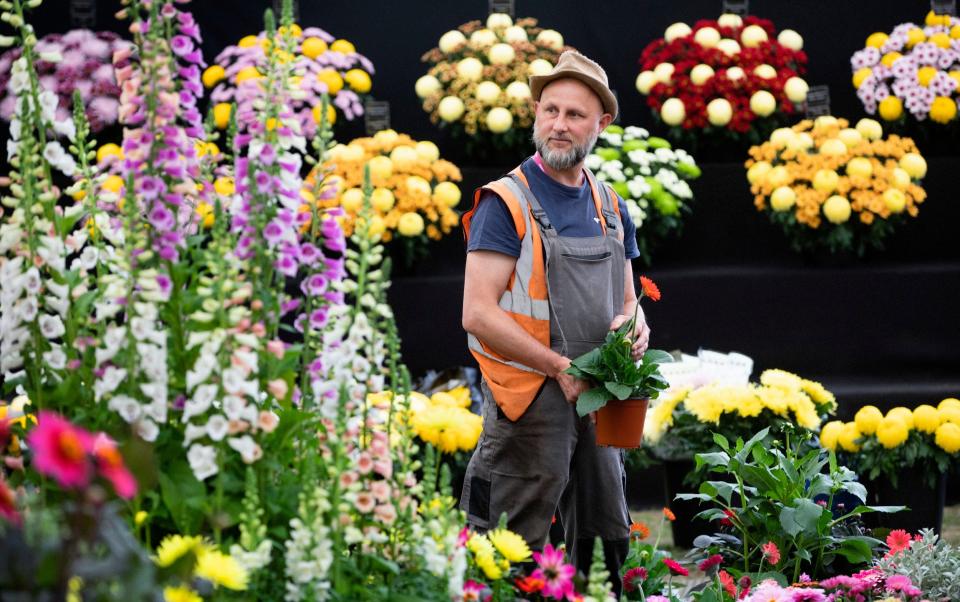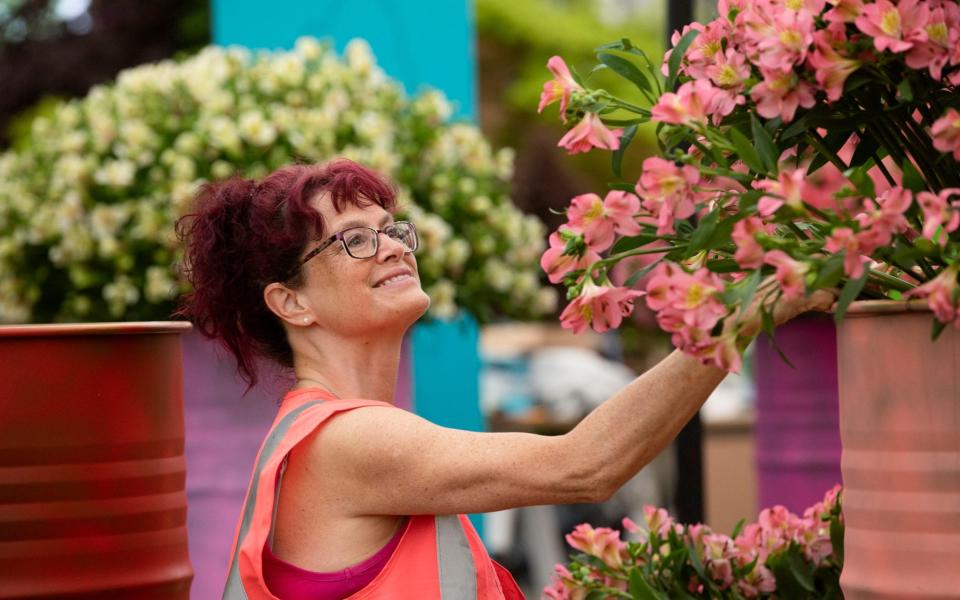Chelsea Flower Show goes green, as gardens to be judged on their eco-friendliness

For decades the gardens at RHS Chelsea have been judged on their beauty, design and originality.
But for the first time they are set to be marked on how eco-friendly they are, in a move reflecting the flower show's bid for better green credentials.
From next year, coveted gold medals could be won or lost on the basis of a designer's environmental decisions, judges told The Telegraph, in updated judging criteria designed to reflect the demands of eco-friendly modern gardening.
The rules are still being ironed out but are likely to reward avoiding peat, using less concrete, and using local rather than imported materials.
James Alexander-Sinclair, who has been an RHS judge since 2008, said this year the judges were piloting a new system to mark gardens based on their carbon footprint.
The RHS will test the approach on a selection of this year's entrants to see if the questions are appropriate, with a view to then introducing it for real next year.

The criteria for gardens to be included in the prestigious flower show is already partly based on what will happen to them after the show, with every single successful entrant this year having a confirmed afterlife in a hospital, school or other community site, Mr Alexander-Sinclair said.
"We are very aware that Chelsea gardens need to be more sustainable than they have been in the past," he said.
"We are certain that every single garden that's coming to Chelsea this year has got a future, and something we are looking at for the future is rewarding the use of sustainable materials and approaches.
"This year it's a separate parallel judging process, where we are testing new criteria. An experimental judging panel made up of experienced judges will look at how the gardens would do if we judged them against that criteria."
Entrants need clear plan for garden afterlife
Manoj Malde, a first-time judge in the "Sanctuary Gardens" category, who has previously designed a garden at the show, said entrants now needed to have a clear plan about what would happen to their display afterwards to prevent it from going to waste.
"When they submit their designs, one of the questions is about sustainability - how they propose to recycle the garden, and also where the materials are coming from - have they use local materials, have they use materials that are from the UK or have they had to come from miles abroad, which means a bigger carbon footprint?
"All of those questions are seriously being asked on the forms now. The designers have to be prepared to answer those questions truthfully."
While it was once common for gardens to be dismantled after the show and not used more permanently, the RHS is pushing for more of them to be resurrected elsewhere in a bid to reduce waste, he added.

His own garden "Beneath a Mexican Sky" received a silver-gilt medal at the 2017 show, but was dismantled afterwards, he said.
"A year later, a fashion company called me up and said 'would we be able to use this garden for a fashion shoot?' and I sadly had to go back to them and say actually, 'this garden doesn't exist anymore - I wish it [did],'" he added.
Plastic grass banned
Last year The Telegraph reported that the RHS would ban much-maligned plastic grass from this year's shows, and it has also pledged to phase out peat across its shows by 2025.
This year's environmentally-themed gardens include one designed by Rewilding Britain which shows an example of a landscape in south west England after beaver reintroduction, and the Brewin Dolphin Garden which offers help to gardeners struggling to grow on poor-quality brownfield land.
An "urban foraging station" designed for the children's hospital Alder Hey in Liverpool will be relocated there after the show, while the "Our Green Planet" garden by the BBC and RHS will be moved to a local school afterwards.

